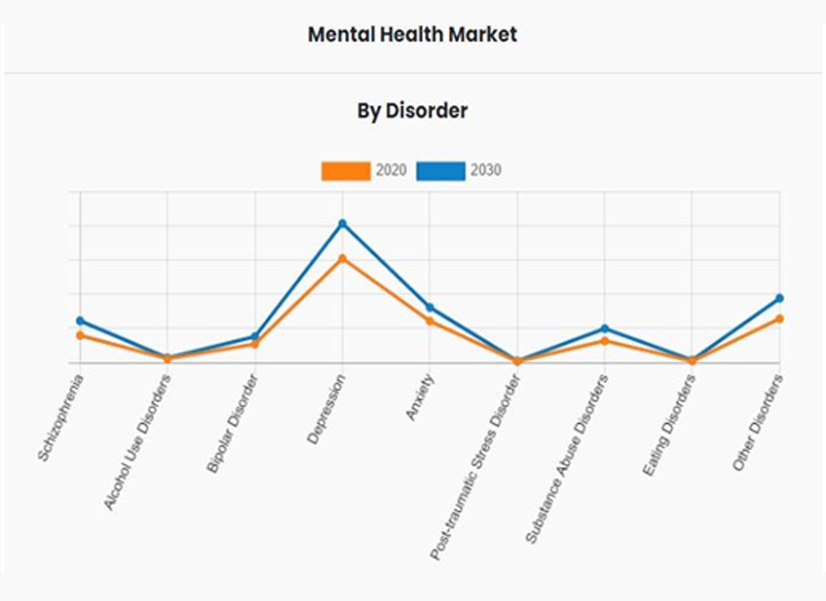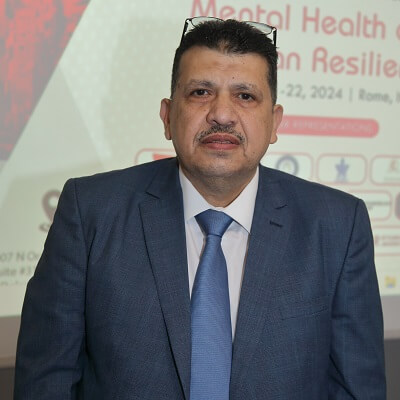About the Conference:
The International Conference on Mental Health & Psychiatry is a global forum designed to bring together professionals committed to improving mental health care and advancing psychiatric research. Hosted in Madrid, Spain, on September 17–18, 2026, this conference offers an engaging environment for learning, collaboration, and meaningful discussions on modern mental health challenges
This two-day event will highlight innovative strategies, emerging therapies, and integrated care models that are reshaping the global mental health landscape. Experts in psychiatry, clinical psychology, mental health nursing, neuroscience, counseling, social work, and public health will share insights that drive practical impact and long-term improvements in mental wellness.
Conference Highlights
- Abstract Submissions: Present your research, clinical findings, or innovative practices to an international audience.
- Secure Your Participation: Early registration ensures your place at this international gathering of mental health professionals.
- Diverse Presentation Tracks: Explore a wide range of mental health and psychiatry topics through oral sessions, workshops, and interactive discussions.
- Downloadable Brochure: Access comprehensive information on scientific sessions, keynote speakers, and presentation opportunities.
- Meet the Organizing Committee: Engage with distinguished thought leaders shaping the future of global mental healthcare.
- Poster Presentation Opportunity: Showcase your work and gain recognition from peers and experts worldwide.
Why Join Us in Madrid?
The conference offers a unique platform for exchanging ideas, strengthening professional networks, and exploring solutions that support emotional wellbeing and psychiatric health globally. Attendees will benefit from evidence-based discussions, collaborative learning opportunities, and exposure to groundbreaking mental health innovations.
We warmly invite you to join us in Madrid for two impactful days dedicated to improving mental health care worldwide at the International Conference on Mental Health & Psychiatry 2026.
Renowned Speakers
Key Points
- Mental Health
- Psychiatry
- Neuropsychiatry
- Neuroscience
- Addiction Psychiatry
- Brain Health & Biomarkers
- Dissociation and Dissociative Disorders
- Mood Disorders & Psychosis
- Child, Adolescent & Developmental Psychiatry
- Geriatric Psychiatry & Aging
- Personality Disorders
- Women’s & Perinatal Mental Health
- Psychotherapy & Psychosocial Interventions
- Obsessive-Compulsive Disorder (OCD)
- Schizophrenia
- Digital Mental Health Innovations
- Bipolar Disorder
- Learn from international leaders and advocates tackling mental health challenges across different regions and cultures.
- Discover cutting-edge strategies, technologies, and therapeutic approaches shaping the future of mental health care.
- Connect with mental health professionals, students, caregivers, and advocates from around the world.
- Take away practical insights and resources you can apply immediately in your personal, academic, or professional life.
- Hear firsthand accounts that highlight the human side of mental health—and the power of resilience and community support.
- Participate from anywhere with live access and on-demand recordings for all sessions.
- Engage in wellness sessions, mindfulness exercises, and mental health breaks to support your personal growth.
Day 1 –September 17, 2026
9:00 AM – Opening Remarks & Welcome Address
9:30 AM – Keynote: Reimagining Mental Health in a Post-Pandemic World
11:00 AM – Panel: Bridging the Gap – Mental Health Access in Underserved Communities
1:00 PM – Workshop: Mindfulness for Professionals
3:00 PM – Case Study: Telehealth and Digital Therapy Innovations
Day 2 –September 18, 2026
9:00 AM – Keynote: Youth Mental Health – A Global Priority
10:30 AM – Roundtable: Workplace Mental Health and Policy
1:00 PM – Interactive Session: Lived Experience Storytelling
2:30 PM – Closing Session: Call to Action – Building Resilient Communities
Speakers
- Showcase your expertise to an international audience of professionals and advocates.
- Get featured in event materials, promotions, and the conference website.
- Connect with other keynote speakers, researchers, and thought leaders.
- Submit your talk for inclusion in the official conference proceedings or e-journal (if applicable).
- Receive a speaker certificate acknowledging your contribution.
- Get access to recordings of your session and others for post-event learning.Early access to networking rooms and panel discussions.
- Attend sessions by renowned mental health professionals and researchers.
- Stay up-to-date with the latest innovations, trends, and practices in mental health.
- Receive a certificate of participation for use in academic or professional settings.
- Engage in Q&A sessions, workshops, and panel discussions.
- Get on-demand access to recorded sessions for continued learning.
- Meet and interact with peers, experts, and organizations from around the world.
- Present your research to a global audience of mental health professionals.
- Engage with viewers in real-time and receive valuable feedback on your work.
- Earn a digital certificate highlighting your contribution to the conference.
- Eligible abstracts may be published in the official conference proceedings or digital abstract book.
- Opportunity to be selected for “Best Poster Presentation” award.
- Discuss your work with leaders in the field and foster future collaborations.
- Your poster will be displayed online for all attendees to view throughout the event.
- Featured in the virtual poster gallery accessible before, during, and after the event.
- Receive input and questions from attendees through interactive comment features.
- Certificate of e-poster presentation included.
- Eligible abstracts may be published in the e-conference proceedings.
- No need to present live—your work speaks for itself in a digital format.
The global mental health and psychiatry market, which was valued at $383.31 billion in 2020, is anticipated to grow to $537.97 billion by 2030, reflecting a compound annual growth rate (CAGR) of 3.5% over the period from 2021 to 2030. This growth is largely fueled by a growing incidence of mental health conditions, an aging population, and broader public awareness initiatives. Efforts in education and advocacy to combat stigma and uphold human rights are also playing a key role in expanding the market. Nonetheless, the increasing financial burden associated with mental health care and substance abuse treatments may pose challenges to sustained market growth.
Mental health issues often manifest through persistent low mood, absence of positive feelings, and a range of cognitive, emotional, physical, and behavioral symptoms, impacting approximately one in five people globally. Factors such as genetic predisposition, chronic stress, and imbalances in brain chemistry play a significant role in their development. The World Health Organization reported that more than 264 million individuals of all age groups were affected by depression in 2020. As one of the primary causes of disability worldwide, depression significantly adds to the overall global health burden.
People with existing mental health conditions have been particularly vulnerable during the COVID-19 pandemic, experiencing intensified symptoms and interruptions in their access to care and support systems. These challenges have had a detrimental effect on the mental health sector. However, several countries are actively addressing these issues by expanding digital mental health services and boosting the number of trained professionals, efforts that are likely to support market recovery and growth in the coming years.
The mental health market is categorized based on disorder type, service offering, age group, and geographic region. Disorders encompassed in the analysis include depression, anxiety, bipolar disorder, schizophrenia, alcohol and substance use disorders, eating disorders, post-traumatic stress disorder (PTSD), and other related conditions. Services are divided into segments such as emergency mental health care, outpatient counseling, inpatient hospital treatment, home-based care, and additional support services. The market also considers different age demographics, specifically pediatric, adult, and elderly populations. Regionally, the market assessment spans North America (including the U.S., Canada, and Mexico), Europe (with countries like Germany, France, the UK, Italy, Spain, and others), Asia-Pacific (covering China, Japan, India, Australia, and neighboring areas), and LAMEA—which includes Brazil, South Africa, Saudi Arabia, and other nations in the region.

Media partners & Collaborators & Sponsors

















